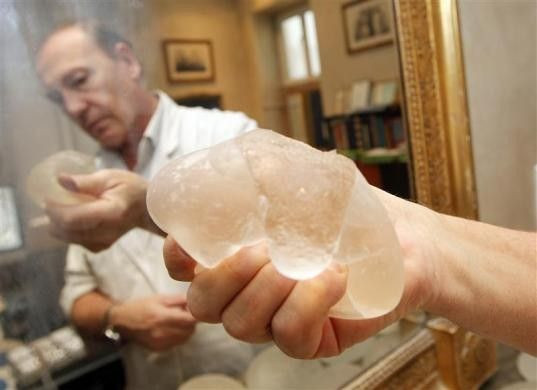Venezuelans Using Made-in-China Silicones Because Of Breast Implant Shortage

Venezuela once had a toilet paper shortage, which appears to have been addressed already. The shortage has shifted to other products, now to branded breast implants that the nation's female population obsessed with physical appearance, are now using made-in-China implants or even those that are of the wrong size.
Surgeons are blaming the government's currency controls of $300 per person annually that deprive the South American nation of foreign currency to purchase imported goods, in contrast with their easy access before to US Food and Drugs Administration-approved implants.
In terms of breast implant procedures done, Venezuela is the fifth highest, according to the International Society of Aesthetic Plastic Surgery, next only to the US, Brazil, Mexico and Germany. In 2013, 85,000 implant procedures were done in Venezuela, reports Fox News.
The procedure was so popular that implants were raffled as prizes by drugstores, offices and campaigning politicians. Anti-government protestors include breast implants among the placards carried by demonstrators, along with their rants against food shortages and devaluation of currency.
The shortage has spawned a black market made up of online trading companies similar to Craigslist.
Daniel Slobodianik, a surgeon, explained the national angst over the lack of implants to a culture of wanting to be prettier than the next woman that a breast enhancement procedure is an aspiration among Venezuelan women, even among the poor.
He shared that breast implant surgeries are now down to twice a month from several such procedures weekly in the past. At times, patients end up with large cup sizes because the lack of choices leave them settling for one size larger than their original preference.
"The women are complaining ... Venezuelan women are very concerned with their self-esteem," Fox quoted Society of Plastic Surgeons President Ramon Zapata.
The shortage is a boon for China as well as financial relief for the poorer Venezuelan women since those from the Asian giant have price tags of about $200, while implants that have the stamp of approval by European regulators costs about $600. However, some local surgeons are wary of the Chinese implants over fears of lack of random government inspection for quality or clinical studies.
Slobodianik shared that in his practice, he had removed several made-in-China implants that ruptured.
YouTube/BBC Newsbeat





















